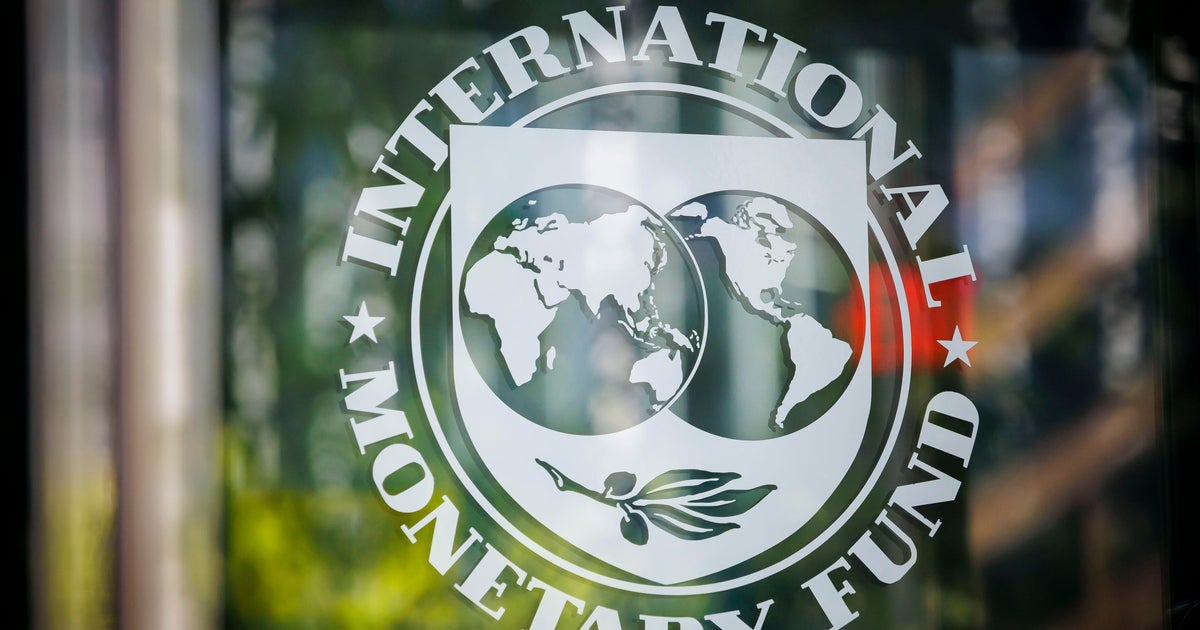



The U.S. economy will experience sluggish growth in 2025 due to an escalating trade war and “high levels of policy uncertainty,” the International Monetary Fund said in a report Tuesday. The projections reinforce economists’ warnings about the negative repercussions of President Trump’s tariffs on the economy.
The U.S. economy will grow 1.8% this year, the IMF said in its latest World Economic Outlook, down 0.9% from January and a full percentage point from last year’s projection of 2.8%. Growth for 2026 is expected to be slightly lower at 1.7%.
“We are entering a new era,” Pierre-Olivier Gourinchas, chief economist at the IMF, said. “This global economic system that has operated for the last eighty years is being reset.”
The rate of global economic growth is also forecast to decrease this year, down from 3.3% in January to 2.8%.
The organization does not expect the U.S. to enter a recession in 2025, but said the odds have now risen to 37% from 25% as of October 2024. Other analysts have said the likelihood could be even higher. James Rossiter, head of global macro strategy at TD Securities, projects the odds of a U.S. recession are 50-50.
The majority of economists polled in a recent Bankrate survey said that trade policy and policy uncertainties could be the factors that ultimately trigger a recession.
The likelihood of a global recession this year has also ticked up to 30% from 17% in October, the IMF said in its report.
The IMF also projects U.S. inflation will increase in the U.S., reaching about 3% by the end of the year.
Federal Reserve Chair Jerome Powell, in a speech on April 16, had also warned that import taxes could drive up inflation. In response to his comments, Mr. Trump took aim at the Fed chair, writing in a social media post the following day that the central bank should be cutting interest rates.
Powell’s “termination cannot come fast enough,” the president wrote.
Uncertainty over Mr. Trump’s trade policy is what’s driving the IMF’s projection of a U.S. economic slowdown. The international financial agency said trade was stable in 2024 and was expected to remain that way, but that the landscape changed in light of America’s tariff war with trade partners.
“This on its own is a major negative shock to growth,” an executive summary of the monetary fund’s report said.
Tariffs have already thrown sand in the gears of U.S. small businessess, the American auto industry, and other sectors that import their supplies from abroad.
The trade war also led to a weaker forecast for China, one of America’s top trading partners. The IMF projects the country’s economy will expand 4% this year, down roughly half a point from its previous forecast. President Trump’s tariffs on China now total 145%. China’s retaliatory tariffs on U.S. goods total 125%.
The IMF’s forecasts were finalized April 4, just after the Trump administration announced sweeping tariffs. The international agency warned that further escalation of the trade war could stymie both near- and long-term growth. However, given the forecast hinges on policy, if Mr. Trump backs down on his tariff threats — reciprocal tariffs introduced on April 2 are currently on pause for 90 days — it could reshape the IMF’s outlook.
contributed to this report.
Characters from My Neighbor Totoro, Spirited Away, and Kiki’s Delivery Service want to help keep…
The Manchester Evening News speaks to the man at the centre of the race to…
A boatman on Dal Lake in Srinagar protests against the Pahalgam terror attack. | AFP…
For years, President Donald Trump blamed “communists” for his legal and political troubles. Now, the…
Nine-time Olympic gold medallist Katie Ledecky has shattered her near nine-year-old record in the 800m…
NEW YORK — Hours after a key U.S. tariff exemption expired on Friday, Chinese e-commerce…